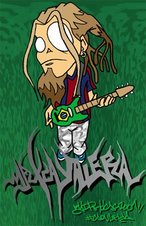 This is no town, no town,
This is no town, no town,
This is no town.
Well I don't know the people next door,
Maybe I never saw them before.
No one belongs in this old place,
A lot of houses in empty space.
This is no town, no town,
This is no town.
Town is a place where you lived and grew,
And things around there mean something to you.
But this old place means nothing to me
But a big no job misery.
This is no town, no town,
This is no town.
A town is a place that begins and ends,
You know your friends and your daddy's friends,
And the guy that runs the grocery store
Lives round the corner or right next door, but
This is no town, no town,
This is no town.
A town is a place where you belong,
Somebody cares if you're right or wrong,
Somebody cares if you live or die,
If they can't help you maybe they try, but
This is no town, no town,
This is no town.
A description of the dehumanising and alienating modern urban environment, deprived of real human relations, solidarity, care of our neighbours, control of our lives, and any social value that characterized the lost world of smaller towns and citizenship, as included in the ancient greek term of "polis". We read in wikipedia:
The first form of citizenship was based on the way people lived in the ancient Greek times, in small-scale organic communities of the polis. In those days citizenship was not seen as a public matter, separated from the private life of the individual person. The obligations of citizenship were deeply connected into one’s everyday life in the polis. To be truly human, one had to be an active citizen to the community, which Aristotle famously expressed: “To take no part in the running of the community's affairs is to be either a beast or a god!” This form of citizenship was based on obligations of citizens towards the community, rather than rights given to the citizens of the community. This was not a problem because they all had a strong affinity with the polis; their own destiny and the destiny of the community were strongly linked. Also, citizens of the polis saw obligations to the community as an opportunity to be virtuous, it was a source of honour and respect. In Athens, citizens were both ruler and ruled, important political and judicial offices were rotated and all citizens had the right to speak and vote in the political assembly.Big cities of today are constructed and organized not to fulfill the true natural human needs and quality of life, but the needs of of market and economy for quick and effective transportation of products and robot-like clockwork and alienated workers.
You can hear a related song by Malvina "Little Boxes" in youtube
Photo was taken from www.reconnaissanceart.com



No comments:
Post a Comment